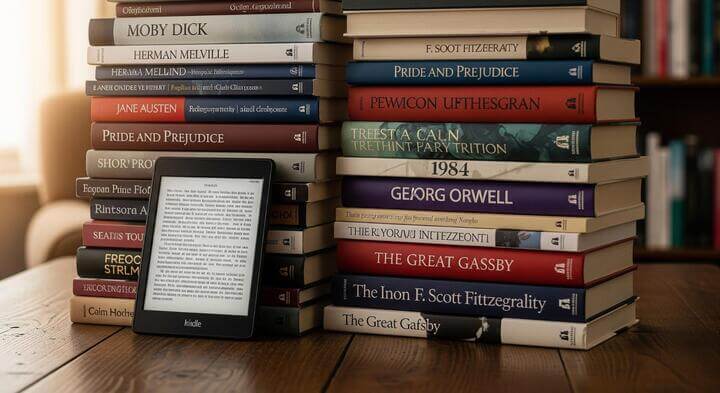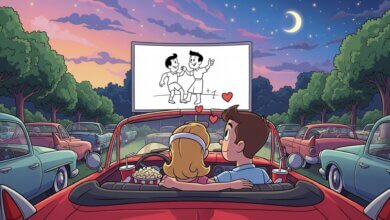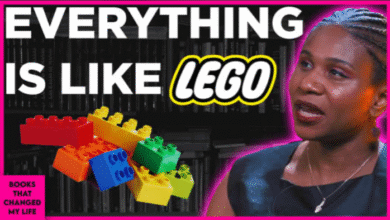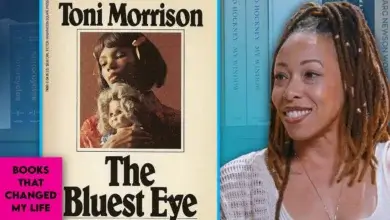
Audiobooks, Kindles and E-Readers are NOT the Same as Books
You may think you’re saving time and energy by consuming books on ereaders or in audio formats, but you’re missing out on one huge thing.
By Jayne Turner – Staff Writer
Dialing in on Audiobooks
Audiobooks have been a great option for the visually impaired for over 50 years, but it wasn’t until the 1980s – when bookstores began selling them alongside paperbacks – that they truly matured as a medium.
According to the Audio Publishers Association, audiobook sales revenue reached $2.22 billion in 2024 with more than half of U.S. adults reporting having consumed an audiobook. Is this a sign of the time? Is this the end of or the printed book? Not if I have anything to say about it.
The Kindle Takeover
In late 2007, the first Kindle e-reader was released. It sold for $399 and promised a capacity of about 200 volumes. Files were downloaded over wifi and the battery lasted about two days – It immediately sold out and became the hottest gift item of the year.
Kindles come in multiple versions, each with unique qualities: waterproof, automatic screen adjustment, color display, even special versions for kids. However, they still can’t hold a candle to a good old printed book. In fact, I believe Kindles suck and always have! This is not an opinion – it is fact. “There is no greater offense to a novel than being encoded, beamed and parsed to a digital screen.”
Why Not Just Read?
Reading is an active, intellectual choice that engages your entire nervous system, while listening is a fully passive one. You may have reactions to audiobooks, but your brain processes “heard” information in a completely different way than read information. Nothing elicits true emotion like the written word on paper. You are also far more likely to remember something read rather than something heard.
This is why reading an entire book leaves you physically buzzing with accomplishment endorphins, a brain full of newly acquired knowledge and something to place on your shelf as prize. Listening to an entire audiobook doesn’t give you any of those things.
Still looking for the best way to listen to your favorite books? Check out this article to see if Airpod Max beats Beats Studio Pro for daily use.
The act of consuming written language via reading is more challenging and engaging than simply listening to it. Audio formats strip you of the ability to go back and reread, pause and look up words, and establish a physical connection with a book. E-readers and something akin to a phone or one of the other annoying devices currently running our lives.
Physical Books > Kindles
Though still a step above audiobooks, Kindles still suck. They are also guilty of dampening the overall reading experience. They remove the feeling of progress that comes from looking at a book and seeing that you are halfway done. No longer can you get a cute bookmark to save your place; your e-bookmark is automatically inserted (lame). Kindles do their best to avoid harsh light, however, digital formats still increase the risk for eye strain, direct retinal-eye light exposure and disrupted sleep. Luckily, there is another solution: printed books!
Back to Basics
Whether you read in bed or in a coffee shop, printed books are better than digital formats in a multitude of ways. Why spend $400 (or more) on a digital device when you can get a library card for free? Why add another device to your life that can crack, break or crash? There is no question: reading a physical book is less distracting, more engaging, and far more memorable that consuming it in a digital format.
Looking for the best way to find a book for free online? Check out this article.
A book is not truly yours until the pages have been wrinkled by the moisture of your tears, folded at the corners by your hands, stained with your pen, or “oranged” by your Cheeto fingers. Just try and avoid staining the library books.
—
Author: Jayne Turner is a freelance writer from Orange, California. She has a bachelor’s degree in Neuroscience with an emphasis on language and cognition. She has ten years of musical theatre experience and a lifelong love of reading. Utterly excited by the brain, she brings a fresh Gen Z perspective to the topics that intrigue us most.



